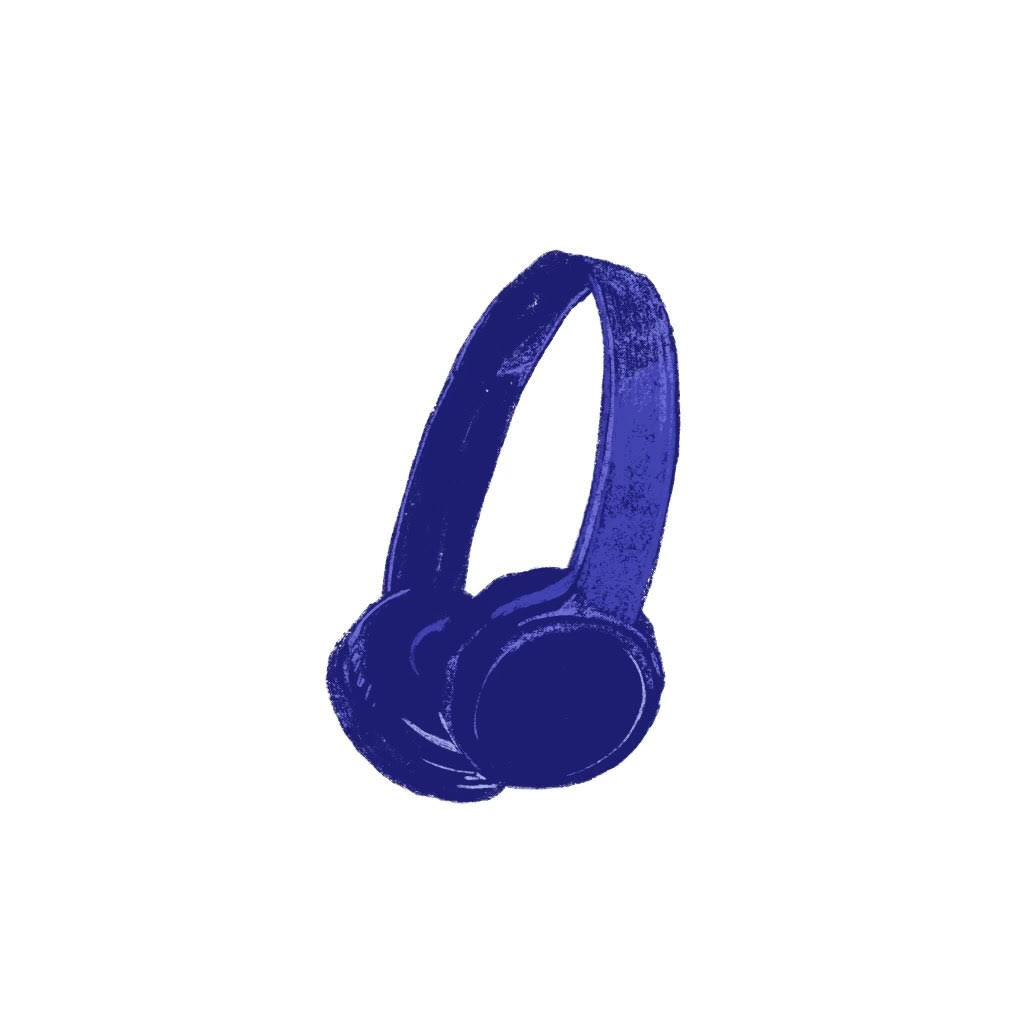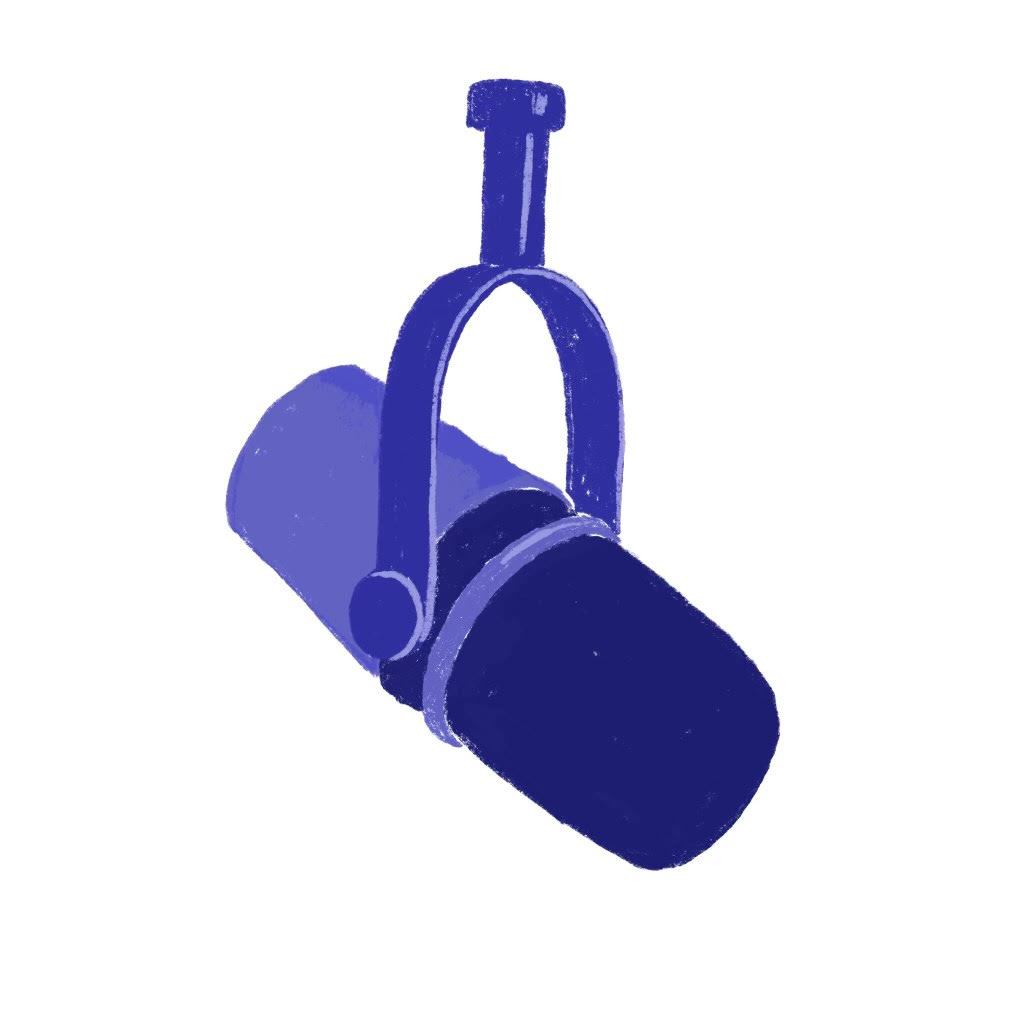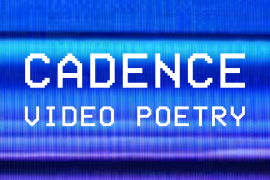The world of podcasting used to be smaller, more niche, and lacking in professionalism, according to Wondery’s popular podcaster and narrator Lindsay Graham. In a recent discussion with the Pacific Sentinel, Graham describes podcasting in a pandemic and his plans for the future.
Wondery, an award winning podcast production company, was acquired by Amazon Music in December 2020.
Founded in 2016 by former Fox News executive Hernan Lopez, Wondery has become a top-five podcast producer, with more than 40 million downloads in December 2018 alone, and in 2019 received six iHeartRadio Podcast Award nominations and a “Most Bingeable Podcast” award win for their series “Dr. Death.”
Despite Wondery’s success, Graham, their lead ad producer, and most recognizable narrator, is helpful and humble, and even hopes to create a curriculum for a class on podcasting.
With podcast ad revenue looking to surpass $1 billion this year and big-tech inundating the podcast industry, Graham’s observations are as important as ever to understanding the art of the podcast.

PS: Can you tell us a little bit about what you’ve been working on?
Graham: Yeah. It’s not ready for public release yet, but . . . I’m considering putting together a start-to-finish podcasting course. I found that (1) I like answering questions like yours and others, and (2) there seems to be, frankly, a market for it. There’s a lot of podcasting courses that seem very entrepreneurially oriented or—and I do a different type of podcast. So I thought it might be lucrative as well. We’ll see. But that’s it.
PS: No it’s smart. That was my impetus for reaching out to you, frankly. I do my own small one for myself, and then I’m working on two for school. I go to Portland State University. I have to agree with you—a lot of what I’ve seen out there… are rather, remedial. I’ve dabbled a bit in looking them up but they’re not very instructive. So I figured… it’d be alright if I reached out.
Graham: No problem. Your questions might end up in the curriculum. Who knows.
PS: Yeah. And I reached out to my editing team…. we put together some questions to ask you. So this is from the entire editorial team as well as myself. So basically just kind of going to start jumping in here. So, walk me through the process from start-to-finish . . . the process from pre-pandemic obviously, walking into a studio to leaving at the end of the day, what you work on when you’re working on a podcast, an episode specifically.
Graham: Sure. Actually the pandemic hasn’t changed my work at all. I’m in the room right now that I’m in… 8-10 hours a day.
PS: Oh wow, really?
Graham: Yeah, I own this little studio in a back building of a property that now my parents own, but at the time I owned it. It’s a little—I guess it’s probably a three car garage that’s split into two rooms, this is the smaller room. I’m trying to move into the bigger room but I’m also doing all the work so it’s slow. But yeah I roll up, probably—I arrive at 9, and then I sit down here and get to work. Most of the day is spent at this point managing the business. So that requires a lot of emailing between both my client (which is Wondery, predominantly) and my team (I have two employees right now—an editor and a sound designer).
PS: And your company is…
Graham: Air Shift. Um, on days that I have something to record, long-form—like an episode—honestly, I’m lucky that (1) I’m able to do this and (2) that my team is good enough to make it possible. I open up a script and I start narrating. I haven’t read it before. I just read cold.
PS: Do you find that it helps reading cold like that?
Graham: I just don’t really think about it too much. It’s certainly not done to keep me fresh or… you know, I’ve heard that stuff, I want to be on my toes. Honestly I don’t know that I believe any of those new claims, I think they’re doing it for the same reason I’m doing it—why work harder than you need to?
PS: Work smart, right?
Graham: Yeah, work smarter, not harder. Now, uh, there are exceptions to that. If there is a new project, like Business Movers just launched recently, so I am reading all of those scripts because this is a new project, I’m in charge of more of the editorial than normal, so that’s a different thing. But soon enough, a script will show up and I’ll start reading it. Thankfully, we’re good enough at this point where I can get through a 35-40 minute script in an hour and ten minutes, and then I’ll ship it off to my editor who starts getting rid of all my mistakes, and there are many. Then I’ll spend a fair amount of my day, most days, recording, writing and recording ads and promotions. I do that a lot because not only do I Have my three podcasts, but I do the ads for almost all the other Wondery podcasts that don’t have hosts. I’m the de facto voice of Wondery. So that keeps me busy too. Writing ads is something that I don’t particularly enjoy, but it’s part of the job. So if I were super successful I’d probably farm that out.
PS: Keeps the lights on though.
Graham: Yes. And then it’s just reviewing stuff, audio will come back in from my editors and I will listen to it and make corrections myself or send it back to corrections. As this business grows it’s becoming harder and harder, and yet more imperative, that I don’t fix the mistakes myself. That I have to send it back to the people who made the mistakes with clear instructions of how to fix it. And that’s much lower
PS: Interesting.
Graham: But I have to do it so the mistake isn’t made a second time.
PS: Interesting. OK, next question … what does your podcasting team look like? What does it consist of, their education, their experiences, and what not.
Graham: So on the production side, the actual air line employees, we don’t do any of the writing of the scripts. So there is me, the host, and probably chief executive, and so I do two roles there, I’m the name talent but I’m also the main manager. Then I got a sound designer who started with me initially just editing dialogue, and um, the very first thing I farmed out. You know, here’s the raw stuff, make it better. But very quickly we, Derrick is just fantastic and a fast learner and has good intuition, so he’s now doing all the sound design for all the shows, including the upcoming season of 1865, which I did personally last time. So he’s really coming up. I have another full-time employee who’s started also on just dialogue, and a lot of the production assistant stuff. So like, OK the episode’s finished, now render it, name it correctly, send it to Wondery, put it in the right folders, just the everyday traffic kind of stuff. But she has started sound designing too, we do two podcasts that are not mine—Tied to History for Wondery and then History That Doesn’t Suck—so Molly, more and more and more, is starting to do those shows. And they’re not the super involved sound design level that even, you know, Scandal is, so it’s a good fit as we train her up. She’s been with us six months. Now, to the point of the writing—so four shows that Wondery owns, and those are American History Tellers, American Scandal, Epstein, and now Business Movers—they provide the scripts. They’re in charge of editorial. So they uh, they decide what seasons are coming up, they find the writers, they do the script editing, they’ve got their whole process.
PS: So they drive all content for that pretty much?
Graham: Right. Except for Business Movers because, uh, that one’s kind of more of a hybrid. Wondery, for a variety of market reasons, insisted that if I was going to do another large scale podcast, that they own it, and so I’m in charge more of content but they still have the IP. What that means is my friend Steve, who wrote American Elections: Wicked Game and he wrote 1865—he’s the head writer of Business Movers. And so we’ll work together and send Wondery stuff. Wondery’s expecting this to be pretty turnkey after the first few episodes, making sure they’re happy. So it’s actually an in between thing where we do actually control the content but don’t own the show.
PS: Interesting. Now you mentioned sound design…can you speak a little bit more to that? Without getting too definitional, what does that entail? I kind of know what it means, but the purposes of my project, can you tell me what that means for you?
Graham: Yeah, sure. I think there’s probably three different categories that could fall into sound design. One is just the everyday ordinary treatment of the narration. So beyond the edit of getting rid of all the stumbles—the uhs and ums—there’s the—well the leveling and EQ and compression and multiband compression and de-essing and all the stuff—noise reduction—all that stuff. At this point, that’s kind of set and forget for us. It’s all templated out. But for every new voice that comes online, that process needs to happen again. My voice is not the same as your voice. So it’ll be different. Then sound design really happens when it’s—and it branches into adding sound effects to places where sound effects are necessary. My shows have these—these moments, right? These scenes that are fully realized and there are characters
PS: I’m literally hearing it in my head, hearing you talk and it’s taking me back to like, the Chicago fire one I just listened to the other day, it’s right there.
Graham: Right. So like, we need fire sounds and crunching boots and burning scent embers.
PS: People screaming.
Graham: Yeah. Stuff like that. And that needs to be not just added in—I mean like, good sound design then finds good sound design to begin with, but then layers them in a soundscape that is three dimensional. So that’s one part of sound design. The next part of sound design would be laying in music, which is just as important as anything else. There are lots of different ways you can do it. History Tellers has music sometimes, and then Scandal and Business Movers have music all the time, wall to wall. So making those decisions—those are aesthetic decisions as well. Sometimes it’s in the script—you know we try and make it obvious, like “here’s a subject change, we need some sort of segue in and out,” but it is a largely intuitive and necessary portion of the job for the sound designer to understand the pace and the arc of things. Like, they can go horribly wrong. Music will screw everything if it’s the wrong cue.
PS: Speaking to that a bit… things going horribly wrong… what do you often find as one or two of the things that—not necessarily hinder you but are troublesome. Anything in particular?
Graham: It’s mostly in the script portion of it that—there are so many ways to write that are bad for audio. It could be as simple as just ambiguous pronoun use. When I say—after naming 3 names and then I say “he,” you have no idea who I’m talking about. And there’s no ability for the listener to scan up and kind of check. Numbers are the same, you know, especially in Business Movers… it’s like “Coca Cola grew from 764 million to 102 point—and it’s like (1) those numbers are very complex and unnecessary and (2) you can’t process them like you can in print. Like I can see that 1.2 billion—it has a relationship to 800 million. That’s easy.
PS: You mean like visually, you can see right there…
Graham: Yeah, there’s a mathematical relationship, it’s a 50 percent increase. So numbers will come across wherein the writer should have said, “Coca Cola increased their profits by 50 percent.” Problem solved, right. And those are the small things. Word repetition, there’s all sorts of other stuff. The bigger things are when I’m in the midst of a script and I don’t know what the hell is going on. You know, admittedly, narration is kind of a fugue state that I get in and maybe I’ve just lost the thread of it, but it’s my job not to lose the thread because that’s how I know how to modulate my narration. But when I don’t know what’s going on, then I don’t know to be high, low, left, right, soft, loud. When that happens, there’s big trouble. So it’s kind of intuitive, I do read these scripts cold, but sometimes that’s the biggest frustration, it’s like fuck, I don’t know what’s going on! So I’ll have to go back and try and fix it. Usually it’s structural. Usually the writer has done something like just skipped a bunch of time, or just threw away something that they thought was obvious but it needed a lot more exploration, or just got too clever. Audio is a pretty straightforward medium. Like I said, you don’t have any opportunity to really rewind, you can’t turn on the closed-captions, you’re not reading, you’re not scanning—if you’ve lost them, you’ve lost them.
PS: I was reading the other day that ad revenue for podcasting is going to be over a billion dollars. Obviously this is becoming, not just because of the pandemic but just in general, a very healthy medium of exchange of ideas, of education, or academia, for instance, and I was wondering, could you speak a little to that? Do you see podcasting as perhaps a healthy vessel for education? Could teachers start using it more often?
Graham: So yeah. Podcasting has been projected to hit over a billion probably this year but the pandemic screwed that up, and then, so really next year. We’re seeing continued growth, I mean it is a growth industry, revenues are rising more, and there’s been a professionalization of the industry too. More and more people who know what they’re doing are entering it. And you can see that too, I mean, you know Wondery just got bought by Amazon, Spotify bought Gimlet…
PS: I saw that. That was pretty quiet to be honest. Or at least if you aren’t in the know. That was really interesting.
Graham: Yeah I think it leaked a little bit early so they scrambled to catch up with it, I don’t know. But you know, a $1 billion market is not like, super big. I’m going to make it up but the frozen potato market is probably much bigger. I know for a fact that radio is like, 10-20x bigger in terms of advertising. So it’s still got a long way to go, but it is a technology market, you know it’s not terrestrial radio, it’s not potatoes, it has potential to grow and not just grow but grow in interesting ways in which there’s social media components and user data extraction and all sorts of shit that Californian investors get excited about. But to your second question about, is podcasting a mechanism for teaching and other things, which doesn’t really seem to be market-oriented…
PS: Yeah that was not the nature of the question. Yeah I definitely—for me, from what I’ve seen so far, it’s almost an underutilized vehicle for this. I’m sure a lot of teachers use it and they do, I’ve seen them. A lot of professors use them, it’s great. But yeah I wondering just—sorry to interrupt you, I apologize, I just wanted to clarify…
Graham: No yeah, I know for a fact that podcasting is a great teaching tool because teachers are doing their own podcasts and teachers are adopting and using podcasts that exist in their classroom. So History That Doesn’t Suck is a great example of a university professor who wanted to teach the masses and is successful at it. My Twitter feed—I wish they would tell me more often—but every month you know, some teacher tags me and is like “Hey we’re using Episode 4 of The Age of Jackson from History Tellers in my classroom.” And it’s fantastic mainly because it’s experiential learning. I love the—well one of them most recently that I enjoyed was that over lunch break, this teacher decided to just start playing the podcast while the kids are eating lunch and, you know, it’s supposedly a topic they’re studying, but this is a free period—but the teacher said this was the quietest lunch period she ever had. And there was just a heartbreaking story about a single dad and his young teen son, they weren’t doing too well together. And so the dad just started playing History Tellers in the car on the way to school, and the son got out and said “Hey Dad, would you mind if we listened to the rest of that together? Don’t listen to the rest of it… wait for me!” And like…I could die! That’s good stuff. So to answer… I mean sure, movies and TV shows and books do all of that too. But podcasting seems to be uniquely good at sneaking into your life, like in your lunch hour, or on your commute. You didn’t expect to have these communions with a classroom or with your family. So…
PS: That’s a really good point. Like, I’ll often be going for a jog, or even—it’s just like something I look forward to in my day. OK I got my podcasts ready, I’m going to do the dishes, it helps me set a pattern for my day. It’s really nice. So to kind of finish up, just consolidate here, going back to process. As far as software is concerned, is there a particular… I use Audacity and Anchor. Now this is just for me… What does a much larger institution such as Air Frame and Wondery utilize?
Graham: Wondery probably uses Pro Tools most. But they use a lot of different tools. They don’t have too many in house engineers. Most of that stuff is outsourced, so they’ll find freelance designers. Whenever I get an audio project from Wondery it’s almost always Pro Tools. I have no idea why because I hate Pro Tools. And I don’t like Avid as a software company, I don’t like Pro Tools as a product… I use Reaper. It is eminently affordable, and it’s free to try, you could probably never pay a cent and always use it, you’d just get annoyed with the little flash screen at the beginning. For independents and small businesses it’s $60. The full-freight license is like, $230. So no real barrier there. And it is a full-fledged program, probably way too much for just podcasts. But I grew up on it in an audio production music setting and it is… it’s really powerful. I mean so powerful that it might be a little hard to get your talons into at first. But it’s very customizable. There’s 4 ways to do everything, so that’s good and bad. But we use Reaper for everything. It’s very lightweight, very fast, very inexpensive, very powerful, and when I do get Pro Tools projects from wherever, I convert them. I’ve got a conversion software thing and I just load them up into Reaper. After that, there’s some plugins that we use, the ones we use most are LUFS Meter, a loudness meter from Klangfreund, pretty much the whole stack from FabFilter, so de-ess-ing, the gate, the EQ, the compression… for most of our environmental special reverbs and effects, we use Audio Ease Altiverb, that is a pretty expensive plugin at 7 or 8 hundred dollars, but it’s a really good convolution reverb that has good post production sounds.
PS: I’m sorry could you … convolution reverb?
Graham: Yeah it’s called a convolution reverb and this one is well suited because it has a lot of post production sounds. So (1) convolution reverb, there’s two types: there’s algorithmic and then there’s convolution. Algorithmic is a mathematical approximation—I’m going to repeat this sound a whole bunch and put it into an algorithm and it comes out sounding like a big room, or a hallway or something. Convolution is actually a photograph of an actual place. So you go into the place you want to sound like, and you either clap or play a sophisticated noise into the room while recording it, and then the software spits out a version of that room.
PS: Okay. That’s really interesting. I’m not an audio guy, so thank you.
Graham: Yeah. In the filmmaking and post production world for video, convolution is used a lot because right before or right after you shoot, you just clap—have one of the actors clap—anyways you’re on set and you can get what the set sounds like. So if you have to ADR later, looping or whatever to replace some dialogue—you can get a really good approximation of what it sounded like on the day, in the place.
PS: So it’s about producing reality. To create, in the mind of the viewer, the listener, whatever…
Graham: Yeah. And… you know, there’s lots of—music algorithmic reverbs are great for music, but they’re kind of idealized spaces. And often, they don’t sound real. Like the real domestic small spaces that you and I inhabit. It’ll sound… it doesn’t sound right. It just doesn’t sound right for voices and sound effects. So yeah, that software is expensive and that’s probably it, in terms of us. You don’t have to spend much money.
PS: And that was one of my questions…one my multimedia contributors was like… we’re starving students. They wanted to know like, in actuality, to produce a solid podcast cost wise, it doesn’t have to be that much, right? Like you can really make something good as long as you’re prepared to work at it, right?
Graham: Yeah I mean honestly… provided you have a laptop or you have something of computing power, you could come out well-under—well-equipped—for under $1000 easy. Probably for under $500. I bet you could do it for under $200. All of the software I mentioned is easily replaceable with free or budget options. None of it’s required. I mean, the real expense is time and having good intuition. Because if you don’t have good intuition or chops or skills or experience, you just have to do it three times before you’ve done it right. So that’s the expense to do a really good podcast. This microphone—this is a stupidly expensive $4,000 microphone—not necessary.
PS: Yeah this was $120 and even then it probably didn’t need this silly thing.
Graham: Well you don’t need both a windscreen and a pop filter
PS: Let’s talk a bit about the pandemic. I know you said that your day hasn’t really changed too much because you’re pretty much doing this in your studio in your backyard, but what are some of the things you’ve noticed that have changed from the pandemic here? For podcasting, specifically?
Graham: Well there’s a whole branch of podcasting that’s been very much influenced and that’s the in person interview. That just can’t happen. So what I think is interesting is that the listening public has probably gotten really used to crappy Zoom audio. No one’s really complained, which tells you something about evangelists—audio quality evangelists. I’m never going to say you shouldn’t improve your audio quality, but it does indicate that maybe good enough is good enough. I do some interviews, not a lot of them, my podcasts are not interview-centric, but those that are, clearly probably hurt. I mean you don’t—especially with ones that don’t have the resources to Joe Rogan it and like, have everyone have a Coronavirus test two days before they show up and fly people in, and so—we, for the interviews that we did on my shows, we would often have people go to a studio, whether it’s a public radio station or a recording studio, or hire a stringer to go and set up in their house or their office or whatever, and do the recording that way to get the best possible audio. Now, we don’t do that anymore. I think we should return to it because it’s clearly better audio, it just—yeah and it’s easier to edit, it’s easier to work with, it’s easier to listen to. But for those persons that do in person interviews, I bet it’s tough—not just for the audio quality, but for the eye contact and the lack of delay and stuff.
PS: Yeah, it’s different. There’s an energy of being in person that you don’t quite get here.
Graham: Yeah obviously it’s several degrees removed. You don’t get the micro-linguistics, you don’t get the small expressions. Everything’s blurred and delayed, and I can’t tell if you’re reacting immediately to the word I just said or to the word I said two minutes ago. So any sort of intimacy is kind of… not destroyed, but just tampered.
PS: Excellent. To finish up here, this was—what advice do you have for aspiring podcasters?
Graham: No I mean like, I should probably have an answer for that. Well the truth is I do have an answer for that because—I just don’t know if it’s satisfying. Because there are other very, very common questions—other than, you know like, what microphone should I use, which is a ridiculous question—it is, you know how do I grow an audience? And immediately, everyone’s like “well are you marketing right?” Are you on social? Are you on Instagram? And there are some absolute marketing procedures—best practices that you should follow—but I don’t really know if I know them well. What I do know is that—I just heard this yesterday listening to someone else talk. No one has ever listened to a podcast and thought to themselves “Well this sucks. You know what I’ll do, I’ll come back in 90 days and see if they’ve improved.” No one ever behaves like that. Especially now, we have tiny attention spans. And so I need to assess the quality, interestingness, and relevance to any new podcast that I’m going to listen to. And that entails making the best show you can. I don’t know how you might have gotten a listener to click on you and download you or listen to you or stream you or however they come to you, but they come to you, that’s the best opportunity you’re going to get. So you need to make sure that you’ve done everything in your power to ensure that they’re not turned off. That could be audio quality, it could be that you’ve given them a good premise about what the show is. If you say your show is true crime weekly, and you talk about your dog monthly, then… you know, they’re going to jet. So there’s a promise to your listener, there’s how good you sound (this could be audio quality or loudness), but it’s also just understanding that people listen for a reason. And if you can—here’s another thing that I’ve been thinking about recently, Warren Buffet indicated that the best way to beat the market—the stock market—let’s say you’re trying to beat the Fortune whatever. The Fortune 50 or whatever index. Just find the worst one and get rid of it. By dropping the bottom of the barrel, you are now better than that index. And finding the worst is probably easier than finding the best. Right? So if you’re looking to improve your podcast, just find the worst thing about it and stop it.
PS: That’s probably the best advice that I’ve received in my life. That was perfect. OK, so I know you’re working on another season of 1865, is there anything else in the pipeline?
Graham: No, the big ones are Business Movers that just launched last month and then 1865 which will come out in April, and I do have another project that I can’t say anything about, so I’m excited about that. And then this podcasting course that I’m developing hopefully to come out in mid year sometime. So I’m busy enough.
PS: That sound about right, that sounds about right. Listen, I really appreciate you taking the time Mr. Graham.





